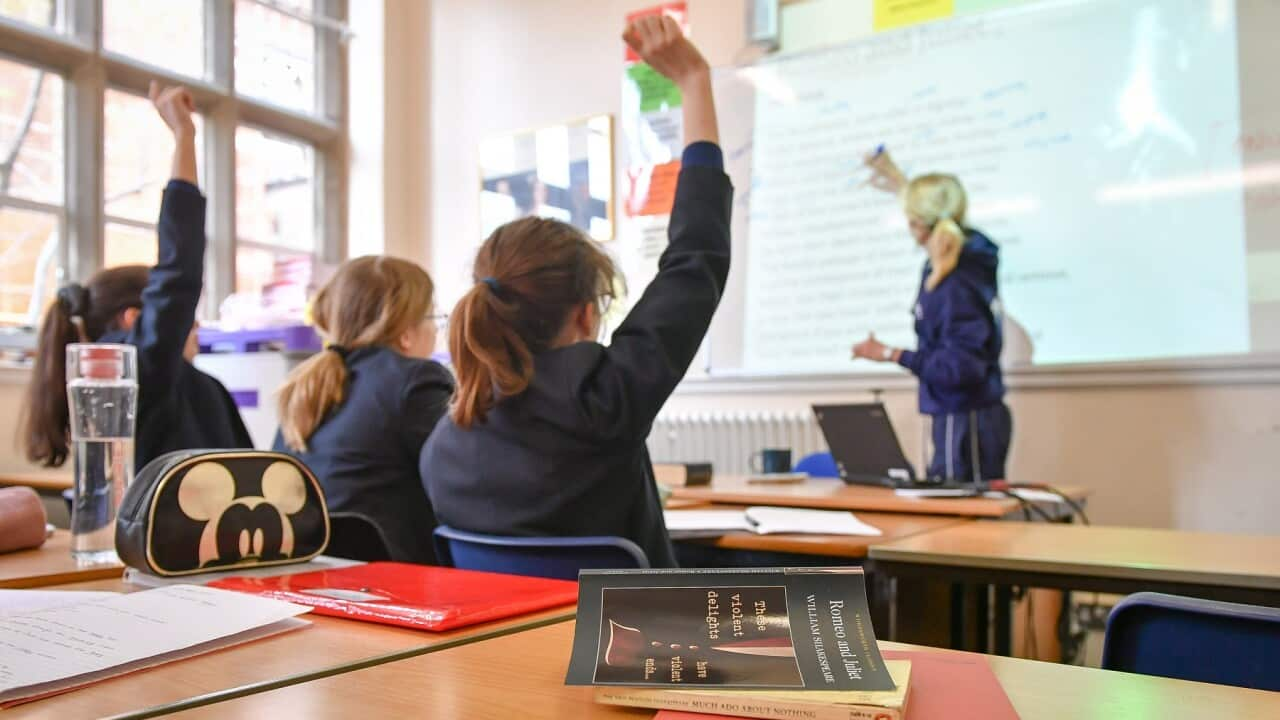TRANSCRIPT:
Every year, students around Australia take the NAPLAN test, which measures proficiency in literacy and numeracy.
This year, more than 1.3 million students from over nine thousand [[9431]] schools across years three, five, seven and nine took the exam.
Now the NAPLAN report card has come back, revealing a third scored below national benchmarks.
Stephen Gneil is the CEO of the Australian Curriculum and Reporting Authority.
"The proficiency level that we look at is a higher level expectation. It's not a minimum standard. So we set those at challenging but reasonable levels, so we want to have some ambition for our children there. And that means that not all children are meeting those expectations at this stage."
A breakdown of the results reveals a number of issues.
Girls broadly outperformed boys on literacy, but the reverse was true for numeracy.
Nick Parkinson from the Grattan Institute says he's worried what their future may look like.
"This is quite concerning. What we're seeing is that nearly one in two boys in classes across Australia are struggling to convey their meaning through text. And struggling to interpret the kind of text they'll need for everyday life."
On average the ACT, NSW and Victoria had the highest scores, and the Northern Territory scored noticeably worse than other states on average across all subjects.
The NAPLAN scores for Indigenous students' were substantially lower than non-Indigenous students across all subjects - and over 30 per cent of First Nations pupils were rated as needing additional support, compared to less than 10 per cent of non-Indigenous students.
The results have sparked calls for reform.
For Shadow Finance Minister Jane Hume, it's about using the right teaching methods.
"We want to make sure that the back to basics approach is brought back to the classroom, so that to allow those kids particularly to learn how to read. Because you can't do maths from a maths textbook if you can't read. So phonics is fundamentally important. That should be part of the deal. It's not all about the money; it is about the teaching methods."
But for most, the concern is that states and territories aren't getting enough money for public education.
The federal government has been locked in negotiations with the states for a new agreement for public school funding.
Victorian Premier Jacinta Allan says the results won't substantially improve without that cash.
"If the federal government are fair dinkum about seeing a nationwide lifting in NAPLAN outcomes, then get on board with the work that the states have been doing for some time now, and fund government schools properly."
Prime Minister Anthony Albanese says he understands the significance of funding.
"We need to do better. And that's why we've got multiple billions of dollars on the table for an agreement with the states and territories that's not just about funding, it's about things like (the National Curriculum and how education is delivered. And these are alarming results. We certainly need to do better with State and Territory governments. (We) all have a responsibility. And that's why (Education Minister) Jason Clare is leading this at a national level."
The Education Minister says he's determined to get an agreement that's fair to everyone.
"I've put $16 billion of extra funding on the table. If that's accepted and that's implemented that will be the biggest extra investment by the commonwealth government by public schools ever, ever. And what the states are saying is that they want the Commonwealth to pay for all of it, I've said let's go halves. That's where the arm wrestle is at the moment."
But some say that is not enough.
Nick Parkinson says Australia's literacy and numeracy results tell a tale of two student populations - where those from advantaged backgrounds thrive and everyone else is left behind.
He says getting all students back on track should be an urgent priority.
"These gaps start early and they really do grow bigger as school goes on. So what we really need to do, is to make sure that we're flagging students that aren't on track, be they boys or girls and intervening early so they can get back on track with their learning and catch up with their peers."













